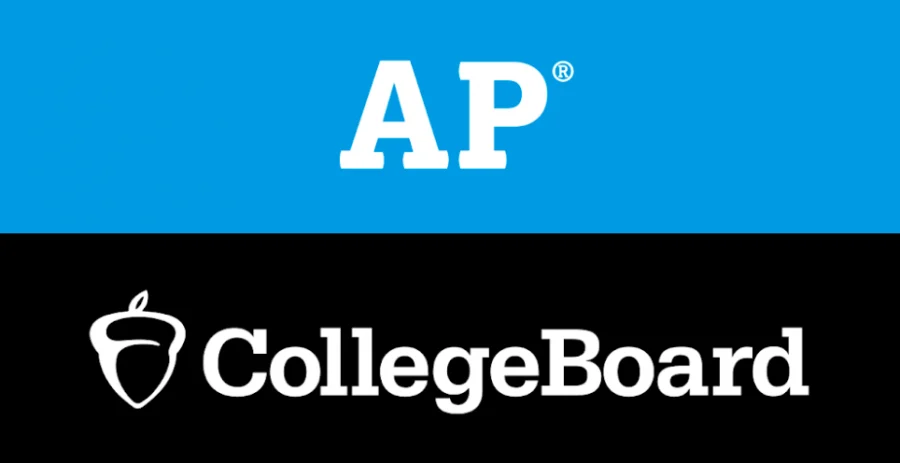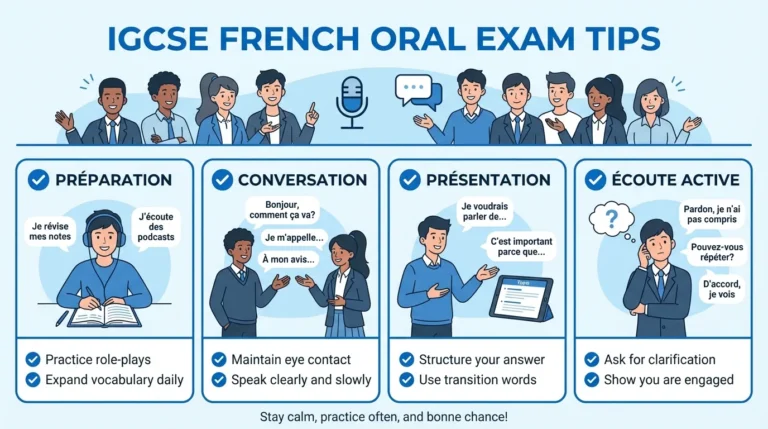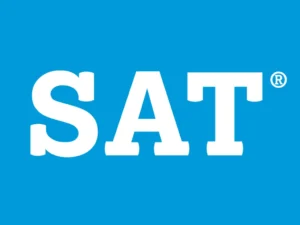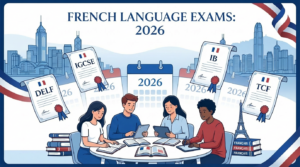
What is the AP French Exam?
Are you passionate about the French language and aiming for academic excellence?
The AP French Language and Culture exam is a rigorous test designed to certify students have achieved a level of proficiency equivalent to a third-year college French course.
🎓 AP French Language and Culture: A Quick Introduction
The AP French Language and Culture course and exam, offered in high schools, is an opportunity to earn college credit and/or placement. It’s a comprehensive, college-level experience designed to develop your fluency and deep understanding of the French-speaking world’s culture in contemporary and historical contexts.
The Six Core Themes (Course Content)
The entire course curriculum and all exam materials—from articles to audio clips—are organized around six major, overarching themes that connect French language and culture globally. Understanding these themes is crucial for success and is a key area where a dedicated French tutor can provide targeted support.
- Families and Communities (La famille et la communauté): Exploring social institutions, family structures, customs, and community values across Francophone societies.
- Personal and Public Identities (La Quête de soi): Examining the formation of identity, alienation, self-expression, and multiculturalism.
- Beauty and Aesthetics (L’esthétique): Investigating the concepts of beauty, artistic expression (art, architecture, fashion), and their impact on daily life.
- Science and Technology (La science et la technologie): Discussing innovation, scientific discovery, ethical questions, and the impact of technology on society.
- Contemporary Life (La vie contemporaine): Analyzing daily life, education, work, leisure, travel, and social issues in the French-speaking world.
- Global Challenges (Les défis mondiaux): Addressing complex issues like environmentalism, political systems, human rights, and economic concerns.
Detailed Exam Format and Skills Tested
The three-hour exam is divided into two equally weighted sections, testing the three modes of communication (Interpretive, Interpersonal, and Presentational):
Key Free-Response Details:
| Section | Tasks | Time duration | Exam Weight |
| I: Multiple Choice (65 questions) | Part A: Print Texts (30 questions) | 40 minutes | 23% |
| Part B: Print & Audio Texts (35 questions, played twice) | 55 minutes | 27% | |
| II: Free Response (4 Tasks) | Written Task 1: Email Reply Interpersonal Writing | 15 minutes | 12.5% |
| Written Task 2: Argumentative Essay Presentational Writing | 55 minutes | 12.5% | |
| Spoken Task 1: Simulated Conversation Interpersonal Speaking | 18 minutes total | 12.5% | |
| Spoken Task 2: Cultural Comparison Presentational Speaking | 12.5% |
- Argumentative Essay: This task requires true college-level analysis. You must synthesize information from three authentic sources (a print article, a chart/graphic, and an audio clip) to build a clear, well-supported, and persuasive argument.
- Cultural Comparison: This is a 2-minute oral presentation where you must compare a cultural aspect of a Francophone community (e.g., attitudes towards work, importance of family) to your own community, citing specific examples.
📈 Latest Evolution and Future Changes
The AP French exam underwent a major redesign in 2012, shifting its focus entirely to a proficiency-based model centered on communication and culture, moving away from purely grammar-based questions.
The most recent and significant evolution planned is the shift towards a digital exam format and standardized course frameworks for all AP World Languages, set to launch in the 2026-2027 school year (at the earliest):
- Digital Format: The exam will transition to the Bluebook digital testing application, discontinuing the paper format.
- Streamlined Structure: The question types will be reorganized and standardized across AP World Languages.
- Course Project: A new, required course project will be introduced where students use authentic sources to prepare for speaking tasks that will be completed on exam day, further emphasizing authentic communication.
These changes aim to modernize the testing experience and align the exam even closer with true, real-world language use and contemporary college-level expectations.
Anthony Regent
✍️ Anthony: Expert French Educator & Blog Author Anthony is a highly experienced French educator and prolific article writer, dedicated to making French accessible and engaging for everyone. With over 10 years of experience in the field, he brings deep educational insight to his content. His extensive background includes working as a course coordinator and innovator in curriculum design, where he expertly developed French syllabi and created effective lesson materials. This expertise informs every blog post he writes. As a valued blog author, Anthony specializes in writing insightful, authoritative articles about: - French Learning Tips and effective study strategies. - In-depth breakdowns of French Exams (DELF, DALF, TCF preparation). - Fascinating insights into French Culture and Francophone life. Follow Anthony's blog for expert guidance, practical tips, and a deeper understanding of the French language and culture. Learn, master, and read with a decade of expertise!
Related Posts

How to Answer IGCSE French Oral Exam Questions
Interactive French > Resources > IGCSE Oral Tips How to Answer an IGCSE French Oral…
Read More
What is SAT French? Complete Guide to the Language Test
What is SAT French? Why Take This Exam Exam Structure Preparation Tips 📚 Understanding SAT…
Read More
Which French Exam Should I Take in Hong Kong? 2026 Complete Guide & Dates
📚 French Exams in Hong Kong 2026 All French exams available in Hong Kong with…
Read More